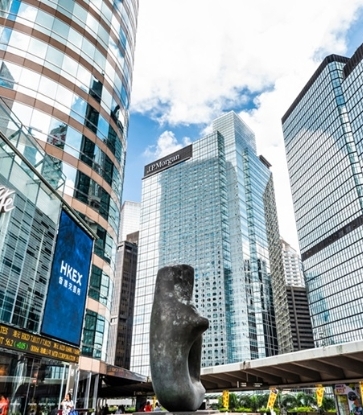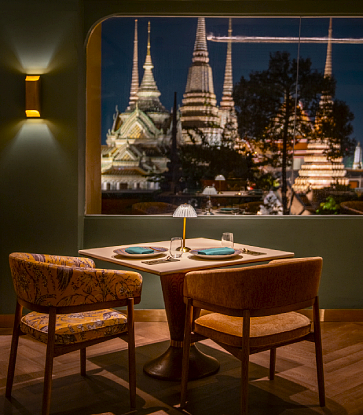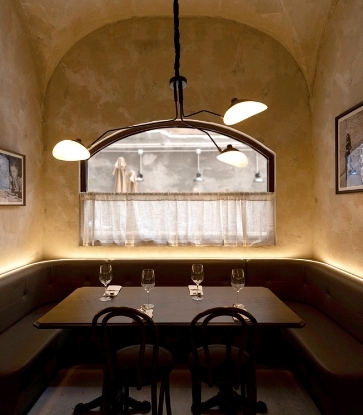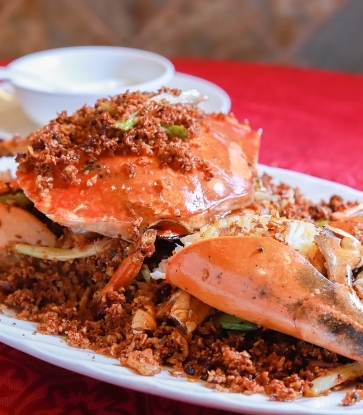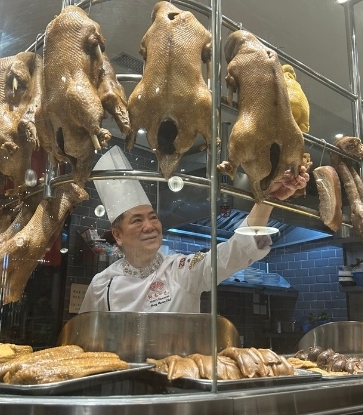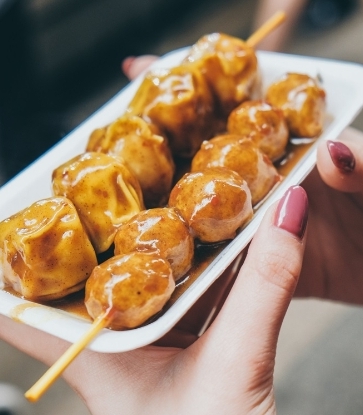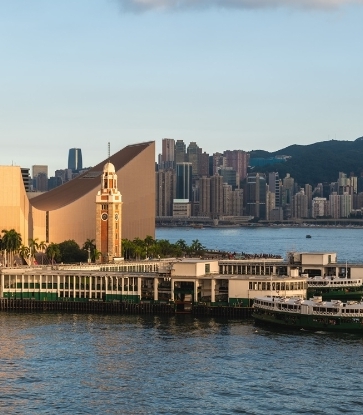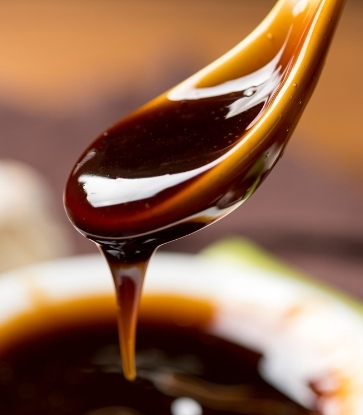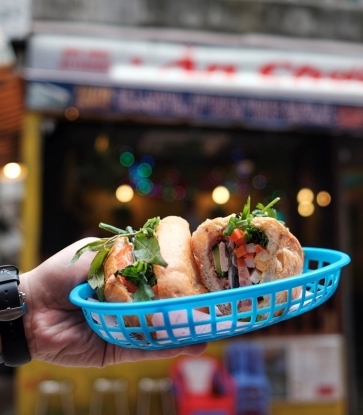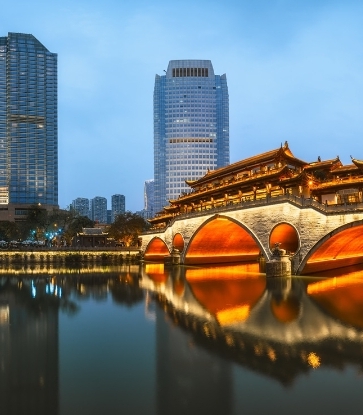Vicky Lau is a lauded name in Hong Kong’s restaurant scene. The chef-owner of two-MICHELIN-starred Tate has been a strong proponent of sustainable and zero-waste practices at the restaurant since its inception. Leather tablecloths ensure that linens are easily cleaned without the need for water-intensive laundry, while flowers decorating the tables are grown from avocado pits without having to be replaced frequently. Mining from her years of experience at Tate, last year, Lau finally opened Mora, a soy-themed restaurant allowing her to realise her sustainability efforts more fully.
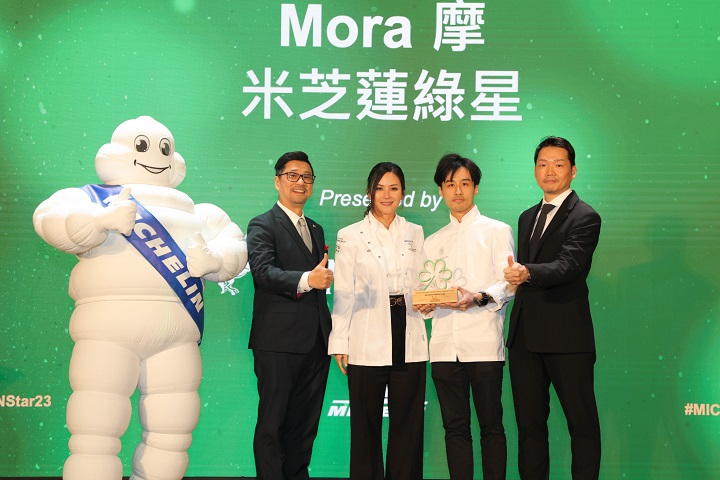
In the latest edition of the MICHELIN Guide Hong Kong & Macau, Mora received a MICHELIN Green Star for championing sustainability. “To me, the MICHELIN Green Star represents the culinary world’s recognition of the importance of protecting the environment. It is a milestone for restaurants, the environment, and the community. It is an admirable step by the MICHELIN Guide to promote sustainable practices in the restaurant industry, and I hope that more industry folks will recognise and understand the need for such forward-looking practices, so that the concept of the MICHELIN Green Star can be extended to all aspects of life,” says Lau.
The chef joked that even the MICHELIN Guide’s way of celebrating the award was very “green”, recalling how the production team visited local farms with her and her team to explore the building of sustainable supply chains and community outreach.

Soy-based but Not Plant-based
Lau is quick to correct the common misconception that Mora is a vegetarian restaurant, or that being vegan or vegetarian is equated to being environmentally conscious. She believes that sustainability is far more multi-faceted. “Mora is committed to preserving the historical and cultural significance of cooking with soy and getting more people to appreciate it more deeply. Soybeans are a delicious, versatile, and nutritious ingredient that can be a sustainable substitute for many less environmentally friendly ingredients. Here, we believe that a great meal doesn’t have to involve traditionally luxurious foods like meat and seafood.”

The tasting menu begins with an appetiser of Bean Curd Skin Tart, layered with the flavours of mint pesto made with sugar snap peas, homemade soy ricotta, and an airy soy foam that is both light and rich. Next, Savoury Soy Milk with 5 Condiments, inspired by the traditional salted soy milk drink, features warm and smooth homemade soy milk juxtaposed with tangy rose vinegar and surprisingly umami ingredients such as scallion, dried scallops, Sakura shrimp, fermented mustard greens, and sun-dried tomatoes.

Other seasonal offerings include Tofu Skin with Mackerel, Cuttlefish Mousse and Herb Sauce, a unique combination of taste and texture. Thin sheets of tofu skin are filled with a delicate and umami-rich mackerel and cuttlefish mousse, topped with a vibrant herb sauce, and accompanied by seasonal firefly squid that provides a burst of oceanic flavour. The dish of One-Sided Crispy Threadfin with Coconut Soy milk Broth is an homage to one of the locals’ favourite fish. The threadfin is first cured in salt, dried to further heighten its flavours, then fried until crispy and paired with a soy milk broth infused with coconut and dried seafood.

Mains include the likes of Warm Scallop with Soy Whey Fermented Tofu Sauce and Pickled Vegetables, as well as Three Yellow Chicken Roulade with Mapo Tofu Style Sauce and Spring Greens, while a dessert of Soy Yogurt Sorbet with Calamansi Mousse and Medley of Citrus rounds out the gastronomic journey. The many expressions of soy running the gamut of tastes and textures bring surprises at every turn.
The Challenges of Sustainability
Beyond the preservation of the history and culture of soy cuisine, the restaurant also works hard to build sustainable supply chains, build close relations with local farmers and producers to ensure fair trade, support the local economy, and reduce carbon emissions from transportation — the ultimate goal to promote recycling, waste reduction, and harm reduction to the environment.

However, running a sustainable restaurant operation in Hong Kong is not without its challenges.
For example, Lau explains many restaurants have space constraints that complicate the implementation of eco-friendly measures like integrated waste management systems for sorting plastic, paper, glass, and food waste, which require a lot of room. In addition, environmentally friendly cleaning products such as eco paper towels, biodegradable soaps, and detergents, as well as water filtration systems to replace bottled water, increase operating costs. Despite the challenges, Mora has chosen to absorb these higher costs and adopt such sustainable practices.
Raising consumer awareness is another hurdle. Despite growing awareness of the climate crisis and environmental issues, few diners prioritise sustainability when choosing a restaurant. Promoting sustainable dining concepts through education and social media has become crucial.
Concerned particularly about the issue of leftovers and food waste, two years ago, Lau joined non-profit organization Feeding Hong Kong, a local charity committed to reducing food waste. Now its director, Lau walks the talk at her restaurants and organises activities and learning sessions to equip the community with waste reduction strategies.

A Call to Arms
Lau hopes to galvanise more in the restaurant industry to pay attention to sustainability in the future. For chefs and restaurateurs looking to take their first steps, she has the following tips and suggestions:
1. Evaluate and Set Goals: Evaluate your restaurant’s current practices, identify areas for improvement, and set realistic and achievable sustainability goals.
2. Source Locally and Seasonally: Build relationships with local farmers and producers to source fresh, seasonal ingredients. This not only supports the local economy but also reduces carbon footprint.
3. Reduce Waste: Implement waste reduction initiatives such as ingredient control, composting, and recycling. Provide waste management training to employees and consider donating excess food to a food bank or shelter.
4. Choose Eco-friendly Products: Choose food packaging, cleaning products, and other supplies that are biodegradable or reusable. Transition to eco-friendly alternatives with items like toilet paper and soap.
At Mora, the seeming limitations — like being bound to one main ingredient or the challenges of sustainable practices — are really the impetus for boundless innovation and creativity. The sky's the limit.
Translated by Rachel Tan. Read the original article in Chinese here.






